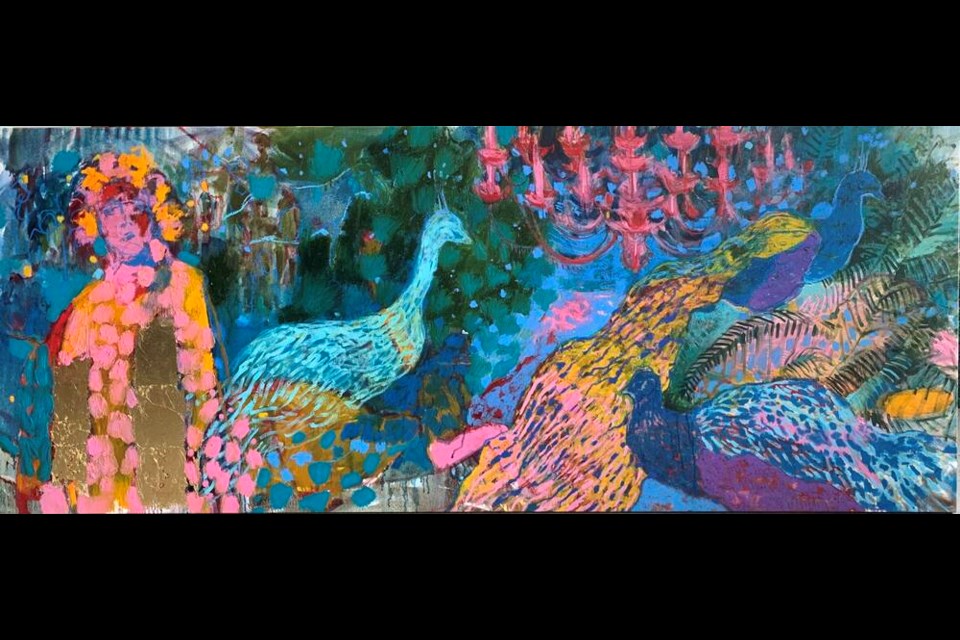While good art can make an audience feel something within the confines of an exhibition, great art can incite change and inspire thought long after that audience has left the gallery.
With their joint exhibition, artists Janine Dunn and Biliana Velkova hope to not only offer food for thought within West Vancouver's Ferry Building Gallery, but to inspire guests to reconsider how they approach sustainability and environmentalism in the days, weeks, and even years after they’ve departed it.
Harvest, running from Feb. 8 until March 3, brings together the work of painter, photographer and performance artist Velkova and rural farmer and artist Dunn. It is the first exhibition in a series by the gallery that aims to address climate fatigue and encourage more engagement in climate action from the local community.
“I think in today’s world, a lot of people are looking to find more skills related to self sufficiency, and how to live in a more sustainable way, like growing our own food and not taking for granted these things that come from the earth,“ said Dunn, whose large-scale paintings depict scenes of her own rural, homestead lifestyle in Gibsons.
Crafted from natural pigments and materials from her own farm land, including leaves and soil, Dunn’s pieces aim to highlight the benefits of co-existing with nature, and living in harmony with the four seasons.
Velkova’s approach to art creation was to envision a world after such practices of sustainability and green living have taken place, one where climate action has helped the return of vibrant flora and fauna.
“If we had a chance to reset, what would that look like? My work comes from this magical realism viewpoint, and so there are these very bright and colourful magical birds and landscapes. We’re imagining new worlds,” she said.
Originally from Bulgaria, Velkova was inspired by elements of her home country’s traditional folklore that focus on the inextricable connection between nature and humans. In Bulgarian culture, birds represent harvest and fertility, but it was the Kukeri, a tradition where masked creatures appear in late January and February to ward off evil spirits and assure good harvest in the year ahead, that served the most inspiration.
“Art is very much about telling stories, and presenting new possibilities, new worlds,” said Velkova.
“It takes us out of our every day, it makes us look at our reality through a different lens.”
Dunn said she hopes the audience connects with the art in a way that inspires them to be more in touch with the land, to help create the world that both artists strive for.
“I’m hoping that people see these works and feel encouraged to look upon these more farm based lifestyles,because there is such an inherent beauty to them and a simplicity that we don’t always see in our modern world, or in city life,” she said.
Mina Kerr-Lazenby is the North Shore News’ Indigenous and civic affairs reporter. This reporting beat is made possible by the Local Journalism Initiative.



